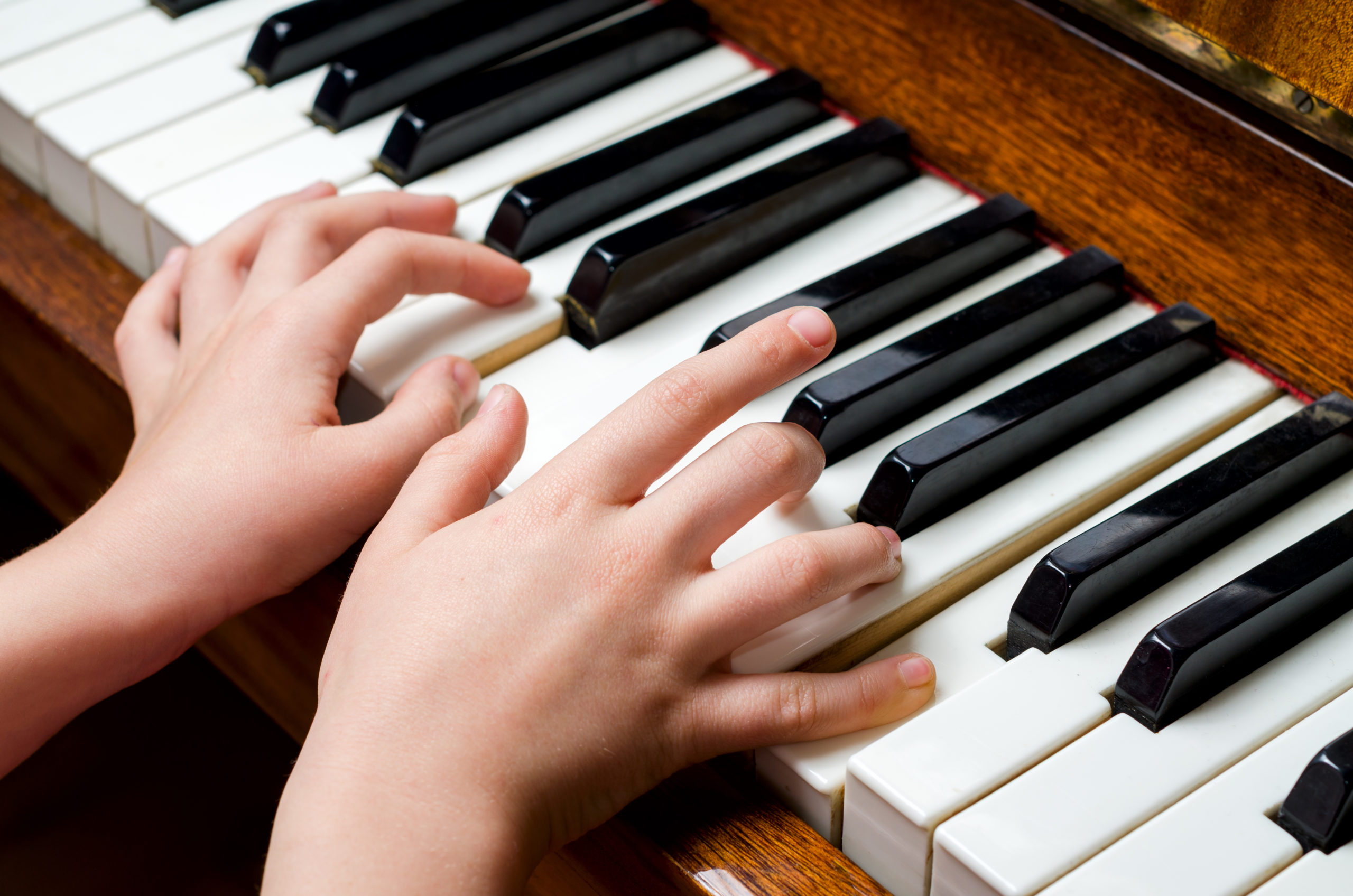Traditional or Non-Traditional Piano Lessons?
By Denie Riggs
Founding Director of Early Childhood Music
You can find great piano teachers who offer traditional lessons all around your area. 
Traditional piano lessons involve one teacher in a studio with one student for a pre-set length of time weekly. Perfect Praise offers traditional piano lessons for children from age 7 and up, and we also offer non-traditional piano lessons for children from ages 12 weeks to 8 years.
Traditional piano lessons vs non-traditional lessons … We offer both. What’s the difference?
Simply put, our non-traditional music lessons, called Early Childhood Music (ECM), include many elements that traditional lessons do not. (In order to keep this post short, I am just going to mention the contrasts, as other posts give more information.)
1. Parent Included- Most drastically, our ECM programs involve a parent or guardian who is actively involved in the classroom. You attend music classes and learn to play the piano, recorder and guitar right along with your child. This single element enables a very young child to be very successful because they have a built-in home tutor!
2. Ear Training Included- Our ECM piano lessons include singing and ear training, while traditional lessons usually don’t. Early ear training trains the ear and gives better chance of not becoming tone-deaf and aid in learning to play the piano. When a child plays the piano and sings, every part of their brain is engaged, creating additional brain function enhancement. The window for ear training usually closes about age 7.
3. Earlier Start is Best- Our ECM piano lessons start babies at age 12 weeks. We start more formal ECM piano study in our Kids ‘n Keys programs at age 4.5 years, while traditional lesson start at age 7 years. This is important as earlier permits additional active brain wiring because of the earlier start. Gerber recently advertised that a child’s brain is 85% developed by age 3. By having your children in a non-traditional, age appropriate music program early, their brain wires differently.
4. The Formative Years and Open Windows- Because our non-traditional lessons start at age 4.5 years, our piano class structures really work to take advantage of the child’s formative years, while windows of ear training, hand eye coordination, etc. are wide open. Those windows close around age 7 years.
5. Advanced Training on Piano and Guitar- If you come up in our ECM program, your child will graduate around age 7.5 years, performing at the piano in 5 different keys (three major, two minor), composing their own songs, and transposing with modulation chords. They also study the recorder and beginning guitar before graduating from Kids N Keys. If you are a newly enrolling student ages 7-8 years old, you can choose between traditional lessons with us, or may want to take a look at doing the Kids N Keys program, offering the additional elements mentioned in this post.

Non-Traditional Piano Lessons
6. Virtual Lesson Included- In a progressive classroom environment, we have found that sometimes additional tutoring is needed if a child misses their lesson due to sickness, schedule or ballgame. So we have created ECM virtual lessons that are included in programs for children from ages 4.5- 8 years. These video lessons include puppets, teaching time and are fun and informative.
7. Positive Peer Pressure- Nothing motivates a student as much as their peers. Since our non-traditional lessons are classes, children are motivated by each other. This simple modification to involve other parents and other children is one of the reasons our students are able to learn so quickly and have so much fun doing it!
Summing Up!
Non-Traditional: Our ECM students graduate from the ECM program around age 7.5 if they come up in the program. They play the piano in five different keys, modulate between keys, transpose, compose original songs, play the guitar and the recorder. They have developed incredible ear training, and are able to hear a song at church or on the radio and can pick it out and transpose it into different keys. They excel in performance as they perform in front of their peers weekly. At the time of graduation from Kids ‘n Keys, most get straight A’s in academic subject, and usually their reading level is 2-3 grades about their peers. These class types are parent attended, so the parent has fun with their child. Positive peer pressure and included virtual lessons top off this program. Typically, ECM lessons are less expensive as the classroom enables more students to learn at a time.
Traditional– Typically, traditional curriculum piano students receive no ear training during their piano lessons, as singing is usually not involved. Private piano students seldom perform for their peers except in formal events. Since successful traditional lessons usually start around age 7 years, the windows for natural rhythm and ear training have closed, so they struggle with feeling the beat and keeping good timing throughout the rest of their life. Typically private lessons are more expensive as the time given by the teacher is one-on-one.
The important thing here is that you study the piano in some form, as the piano lessons are the best activity for your brain, your academics, your health and more!
Come on everyone, let’s make music!

